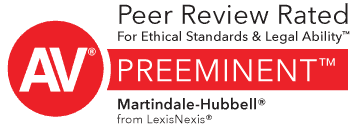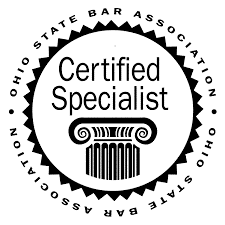The "Weinstein" Tax Provision: Friend or Foe? Part II
posted by Christina M. Royer | June 11, 2019 in Business Law
Blink, and the law changes. In a March 2019 blog post, I talked about the Weinstein tax provision that made it into the tax code in December 2017. By way of reminder, that’s the provision designed to disincentivize confidentiality clauses in sexual-harassment settlement agreements by eliminating business expense deductions for the settlement itself, and for any fees paid to the attorney handling the case, if the agreement contains such a clause. At the end of that post, I previewed a possible quagmire that this provision could create for plaintiffs. Well, three months of time passing and a cryptic post on the IRS’s website have changed my view a bit.
For a while, tax lawyers and employment practitioners on the plaintiff’s side were concerned that the breadth and vagueness of the language in the Weinstein provision could eliminate a very important tax break for plaintiffs. In 2004, Congress enacted the Civil Rights Tax Relief Act. Among other things, this provision permitted the victims of employment discrimination to take an “above-the-line” deduction for fees paid to attorneys handling their cases. See 26 U.S.C. § 62(a)(20); (e). An “above-the-line” deduction permits taxpayers to deduct certain amounts before computing their adjusted, gross income and determining any tax owed. This provision provides reliefs to plaintiffs from paying taxes on contingent fees to their lawyers, in addition to paying taxes on the settlement payment itself. Without this provision, the U.S. Supreme Court’s holding in Banks v. Commissioner, 543 U.S. 426 (2005), would control, and any contingent fees paid to the lawyer would be taxable to both client and counsel.
If the broad and vague language of the Weinstein provision also includes attorney fees paid to claimants, then any claimant who agrees to – or wants! – a non-disclosure provision would be stuck paying taxes on contingent fees paid to her lawyer. Not ideal. To add insult to injury, because the 2017 Tax Cuts and Jobs Act also wiped out most “below-the-line” miscellaneous, itemized deductions, plaintiffs in this situation would also be precluded from deducting the attorney fees “below the line,” after computing their adjusted gross income.
The IRS has assuaged these fears, to some degree. In a brief and somewhat cryptic FAQ on its website, the IRS said this:
Question: Does Section 162(q) preclude me from deducting my attorney’s fees related to the settlement of my sexual harassment claim if the settlement is subject to a nondisclosure agreement?
Answer: No, recipients of settlements or payments related to sexual harassment or sexual abuse, whose settlement or payment is subject to a nondisclosure agreement are no precluded by section 162(q) from deducting attorney’s fees related to the settlement or payment, if otherwise deductible.
See https://www.irs.gov/newsroom/section-162q-faq.
At least as of this date (June 11, 2019), there has not been a case involving this issue, or any other kind of authoritative guidance from the IRS on the applicability of the Weinstein provision to contingent fees paid by victims of sexual harassment or abuse. That said, the IRS’s post is consistent with a publication from Congress’s Joint Committee on Taxation from December of 2018, which states that “Any attorney’s fees incurred by the beneficiary of the settlement or recipient of the payment are not subject to this rule,” and notes that a “technical correction” may be necessary to “reflect this intent.” See General Explanation of Public Law 115-97, available for download at https://www.jct.gov/publications.html?func=fileinfo&id=5153.
Even though it is still not crystal clear that the inartfully drafted Weinstein provision will not adversely impact plaintiff, I think, for now, plaintiffs’ attorneys can breathe a little easier – at least on this front!
Author’s Note: This blog post is adapted from a longer article that was co-authored with Lesley Weigand, Esq., and that appeared in the Winter 2018/2019 edition of the Ohio State Bar Association Labor & Employment Law Section Newsletter.
Related Articles
- The "Weinstein" Tax Provision: Friend or Foe?Since the Harvey Weinstein story first broke in the New York Times , it catapulted the #MeToo moveme...
- Small Business Administration Coronavirus Forgivable Loan ProgramQ I heard that my business can borrow money to cover two months of payroll and not pay it back. Is t...




